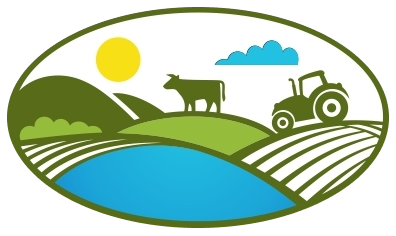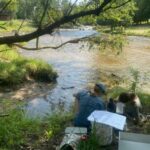
- This event has passed.
Landscapes that Work for All of Life: Growing Community and Climate Resilience by Regenerating the Soil Sponge
September 20, 2021 @ 6:00 pm - 8:00 pm EDT
FreeThis virtual workshop, led by Didi Pershouse, will deepen each participant’s understanding of whole-systems landscape function and effective land management, with a focus on water and the soil sponge. Biology creates a natural sponge in healthy soils and grasslands that slows and sinks water on a total landscape scale–providing resilience in times of flooding and drought. Many of our current economic, social, and climate concerns are due to a degradation of our country’s soils, in particular it’s sponge-like structure or “tilth.”
In this introductory class we will consider these questions:
- What is the soil sponge, and how is it different from soil carbon?
- Can a healthy soil sponge really address our climate, environmental and social concerns?
- Resilience to flooding, drought, and wildfires
- Regulation of regional temperatures
- Food and water security
- Biodiversity
- Health and increased immunity for all life on land
- Local economies
- Conflicts over resources
- How do we work with nature’s essential workforce to create conditions for the soil sponge to regenerate?
- What is the role of thoughtful livestock management in regenerating the soil sponge?
Didi Pershouse is the author of The Ecology of Care: Medicine, Agriculture, Money, and the Quiet Power of Human and Microbial Communities and Understanding Soil Health and Watershed Function. She teaches participatory workshops both in person and online, helping to show the nested relationships between soil health, human health, water cycles, and climate resiliency. She is the founder of the Land and Leadership Initiative and the Center for Sustainable Medicine, and a co-founder of the “Can we Rehydrate California?” Initiative. She is an independent trainer and curriculum developer for the UN-FAO Farmer Field School Program and the Andhra Pradesh Community Managed Natural Farming Initiative in India. She was one of five speakers at the United Nations-FAO World Soil Day in 2017.
She is a Planning Commissioner for her town, a member of the Vermont State-appointed Payment For Ecosystem Services and Soil Health Working Group and is on the board of directors of the Soil Carbon Coalition, the Vermont Healthy Soils Coalition and Regenerate Earth. She led a successful effort to conserve the Zebedee Headwaters Wetlands while serving as a Vermont Conservation Commissioner.
Contact [email protected] for more information.
Once registered, we will email you a Zoom link before the class.
Submit Your Event to the CVFC Calendar
CVFC members and the general public are welcome to submit events to our calendar. Members may submit any event they are hosting, while the general public may submit events related to water quality, soil health, and climate smart farming.




